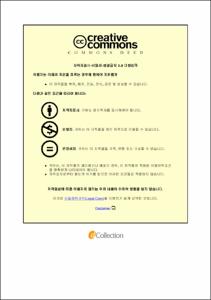한국과 대만의 역물류 시스템 비교 분석 연구-폐건전지를 중심으로-
- Alternative Title
- Comparative Analysis of Reverse Logistics System between Korea and Taiwan:With Particular Reference to Waste Battery
- Abstract
- Over the past 20 years, the challenge of proper disposal methods for waste batteries is an escalating concern due to its potential to pose environmental hazards. In 2006, the European Union (EU) promulgated the Battery Directive and introduced the Extended Producer Responsibility (EPR) system, which stipulates the roles and responsibilities of battery manufacturers and related industries in the operation of reverse logistics of waste batteries in manufacturing, distribution and sales, and recycling. This has prompted the transformation of waste battery disposal in many countries from burial to full recycling of waste batteries, as well as the long-term goal of the sustainable development of resources.
South Korea is one of the centers of technological development in the modern world. High-tech products made by domestic manufacturers are loved worldwide. In Asia, Taiwan shares similar technological strength with South Korea, the two often being compared. In recent years, South Korea and Taiwan have considerable exchanges in the operation of the reverse logistics system of waste batteries. To provide an efficient solution to improve current waste batteries reverse logistics management, this study will explore the operation mode of the two countries, through investigating and analyzing the disposal behavior and environmental awareness of the waste batteries of the two nationals.
Research methods: First, this study reviews the current status of government policies and regulations, management organization and operating methods, and current operating results of the reverse logistics system in South Korea and Taiwan. Next, a questionnaire survey focuses on waste battery recycling was conducted in both countries. The content of the survey includes three levels. 1. The current status of battery usage habits in both countries 2. The current status of using conventional battery recycling boxes and the inconveniences during use. 3. Average knowledge level of waste battery recycling and acceptance of relevant information in the sample population. Survey results are examined and analyzed through t-test and cross-analysis.
Research results: After comparing the current status of the waste battery reverse logistics system between South Korea and Taiwan, this study found that although the central government of South Korea has comprehensive policy planning, it is hard for the regional government to implement those regulations. Potential reasons include the lack of incentive programs and low waste batteries recycling sites. The results of the questionnaire survey show that Korean citizens have a better understanding of the use of batteries compared to Taiwan nationals, but they are less concerned regarding environmental pollution caused by waste batteries. On the other hand, multiple defects of waste battery recycling facilities in South Korea include the poor design of the recycling box, incomplete disposal instruction, insufficient disposal locations, all lead to the result of a low overall recycling rate of used batteries. This study recommends that South Korea should establish a convenient waste battery recycling system, and actively educate and promote knowledge about waste battery recycling through incentives to achieve environmental protection and sustainable development of society.
- Issued Date
- 2020
- Awarded Date
- 2020. 8
- Type
- Dissertation
- Publisher
- 부경대학교
- Alternative Author(s)
- KONG CHI YANG
- Affiliation
- 부경대학교 대학원
- Department
- 대학원 국제통상물류학과
- Advisor
- 조찬혁
- Table Of Contents
- 제 1 장 서론 1
제1절 연구의 배경과 목적 1
제2절 연구의 내용 및 방법 5
제3절 연구의 구성 7
제 2 장 선행연구 및 연구방법 9
제1절 전지와 역물류 9
가.전지의 기본 개념 9
나.폐전전지의 역물류의미 11
제2절 연구모형 및 연구문제 14
제3절 조사대상 및 자료수집 16
제4절 설문지 구성 17
제5절 분석방법 18
제 3 장 한국과 대만의 폐건전지 역물류 시스템 정책 비교 19
제1절 한국의 폐전전지 역물류 시스템 19
가.정부 정책 및 법규 19
나.관리조직과 운영방식 23
다.폐건전지 역물류 시스템의 운영 현황 26
제2절 대만의 폐건전지 역물류 시스템 27
가.정부 정책 및 법규 27
나.관리조직과 운영방식 30
다.폐건전지 역물류 시스템의 운영 현황 34
제3절 소결 35
제 4 장 분석 결과 38
제1절 한국과 대만의 국민 일반적 현황 38
가.표본의 인구통계학적 특성 38
나.건전지 이용 실태 40
다.건전지에 대한 일반적 인식 44
라.폐건전지 정규수거함 이용 실태 46
마.폐건전지 정규수거함 이용 불편 정도 50
바.국민의 정부 정책 인식 55
제2절 국적 차이에 따른 독립 표본 t-검정 결과 57
제3절 국적 차이에 따른 교차분석 60
제 5 장 결론 및 제언 76
제1절 연구 결과 요약 76
제2절 연구의 시사점 78
제3절 연구의 한계점 및 향후 연구방향 79
참고문헌 81
부록1 83
부록2-설문지 84
감사의 글 90
- Degree
- Master
- Appears in Collections:
- 대학원 > 국제통상물류학과-FTA비즈니스전공
- Files in This Item:
-
-
Download
 한국과 대만의 역물류 시스템 비교 분석 연구-폐건전지를 중심으로-.pdf
기타 데이터 / 2.19 MB / Adobe PDF
한국과 대만의 역물류 시스템 비교 분석 연구-폐건전지를 중심으로-.pdf
기타 데이터 / 2.19 MB / Adobe PDF
-
Items in Repository are protected by copyright, with all rights reserved, unless otherwise indicated.